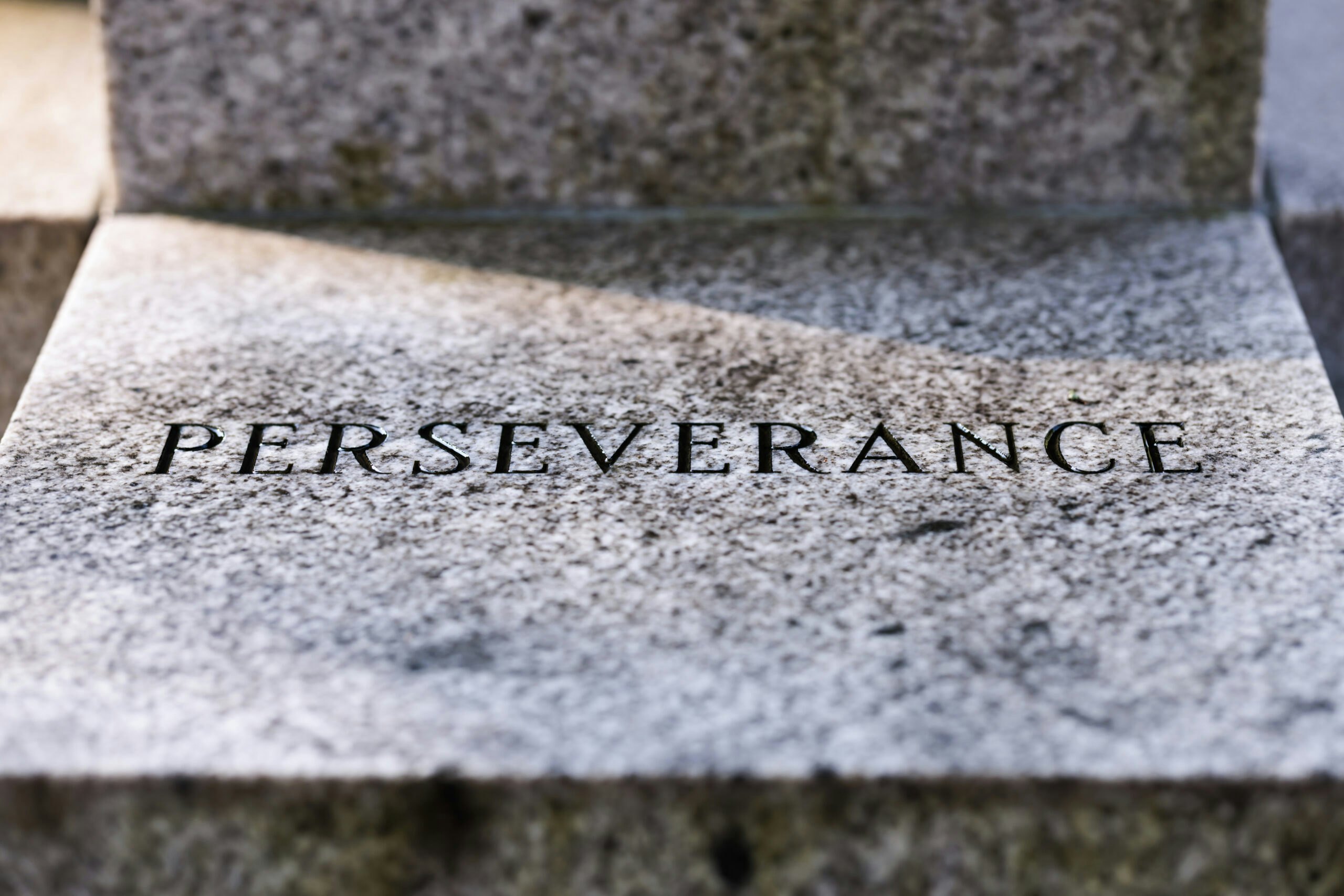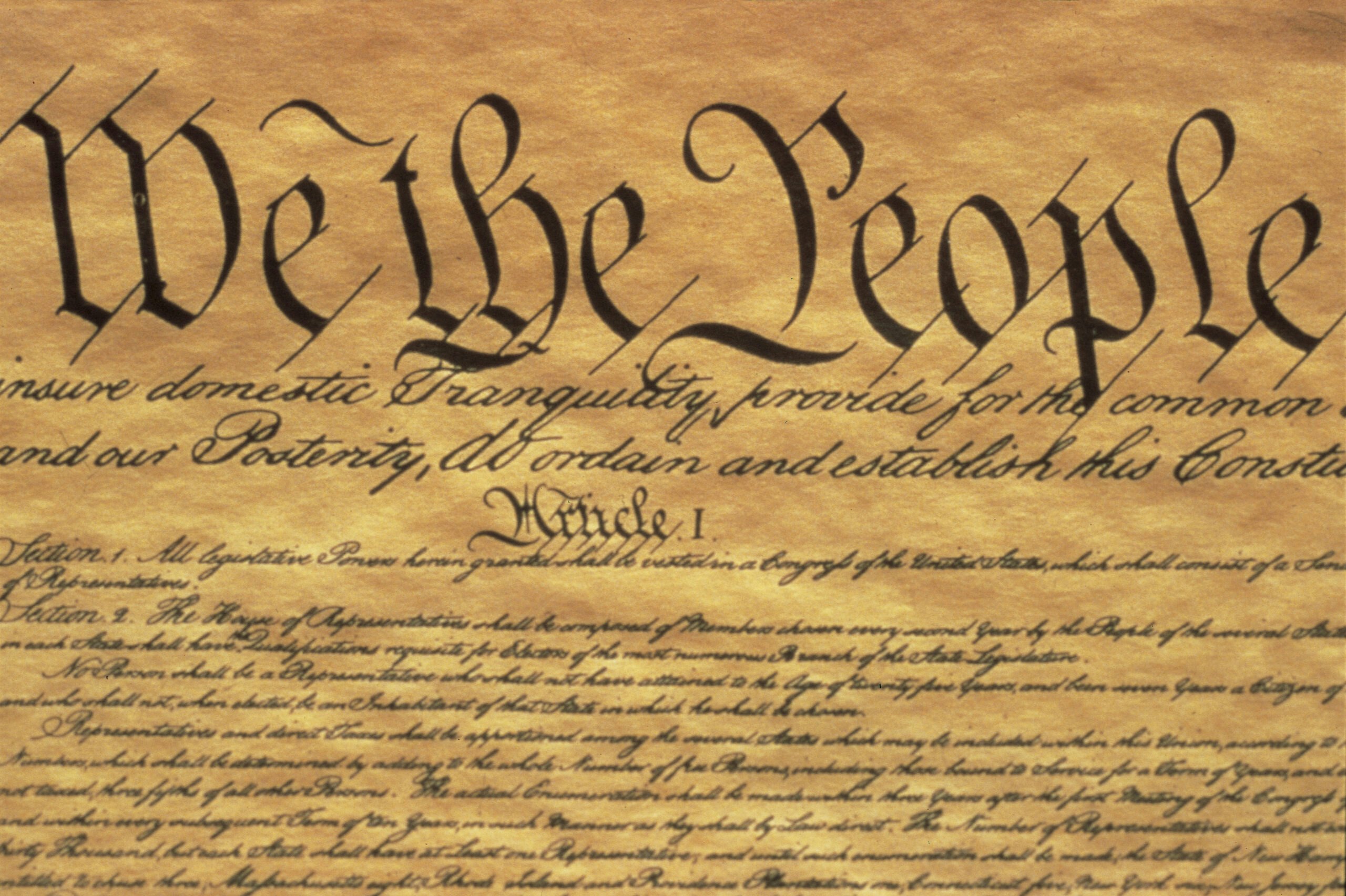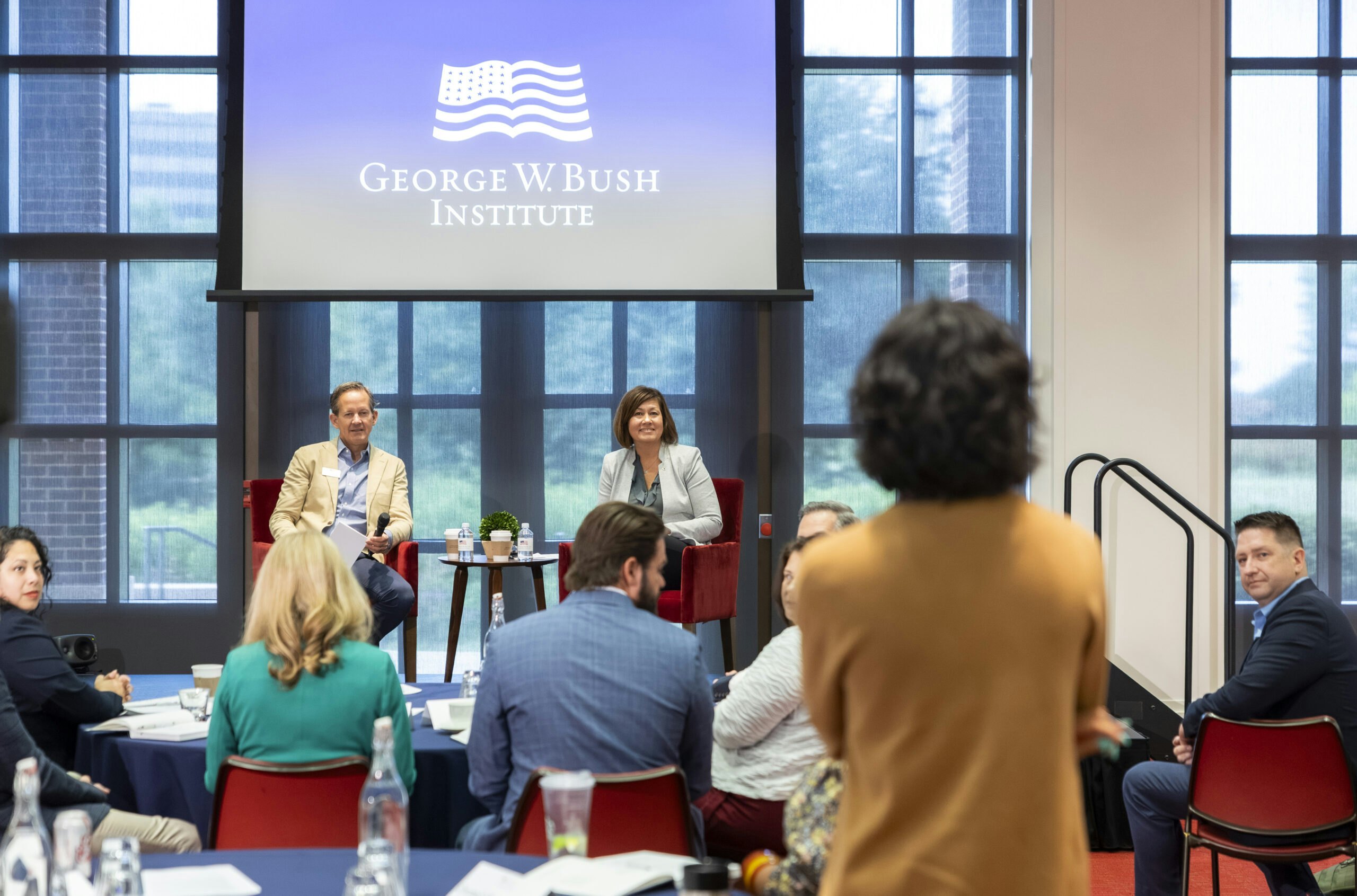The George W. Bush Institute's monthly U.S. democracy roundup
One Big Thing
A recent study by More in Common found that most Americans would like to seek connections across political, racial, social, and religious lines, but they feel they lack the opportunities to do so. The report serves as another reminder that Americans share certain fundamental values – specifically, an appreciation for diverse perspectives and a pluralistic society – but sometimes struggle to put those values into practice.
It is not always simple to figure out how to actively surround yourself with individuals from opposing political parties or radically different backgrounds. Walking into new rooms with new faces can be intimidating. However, it is essential to build these connections – and to create the conditions for others to make those connections – to foster a healthy society.
Our Presidential Leadership Scholars program is a collaboration among four presidential centers and welcomes leaders from many different social, cultural, political, and religious backgrounds. Scholars often cite the pluralistic model of the program as having a major impact on their careers and personal lives.
Our recent Forum on Leadership reflected the same ideas in conversations with leaders like Emmanuel Acho, Daniel Lubetzky, and Salim Asrawi, who all discussed the importance of our connections to each other. This year’s Forum on Leadership, held on April 25, also included inspiring comments from former U.S. Secretary of Defense Dr. Robert M. Gates, conversations about challenges facing higher education, and insights about the role of the media in our democracy today.
Those leaders and our scholars inspire us in our work, and we hope they do the same for you.
Bush Institute Insights
- In The Dallas Morning News, Bush Institute Senior Editorial Advisor William McKenzie detailed America’s long history of inflammatory and opinion-driven news, dating back to the 1700s. While this history doesn’t diminish our modern media crisis – where news is increasingly individualized and splintered – it does remind us that a course correction is still possible. Local journalism can provide such a course correction, McKenzie argues, by countering a fragmented world with reliable information.
- One way that newspapers can gain the trust of their readers is by producing “knowledge-based journalism,” McKenzie wrote in a separate article on the Bush Institute website. Knowledge-based journalism entails hiring journalists with subject matter expertise in the topics they cover—which allows journalists not only to report on the “who, what, when, and how” of an event, but also the “why.”
- Bush Institute Research Fellow Joseph Kim, originally from North Korea, reflected on the recent impeachment of South Korean President Yoon Suk Yeol and what this means for both human rights and democracy in South Korea. Kim argues that while impeachment can be a sign of democracy in action, South Koreans should ensure that elections, rather than impeachments, are their primary means of securing good leaders.
- Dr. Jeffrey Engel, presidential historian and the David Gergen Director of the SMU Center for Presidential History, joined The Strategerist podcast to discuss the importance of opening presidential archives to scholars, as well as how a historical perspective can help one navigate turbulent political moments.
What We’re Reading
- In an animated video, Yuval Levin explained that the Founding Fathers intended for some friction in the political system to force the branches of government to find common ground. According to Yuval, Congress should represent the will of a broad coalition of Americans. Such coalition-building is only possible if people from different sides are encouraged to work together. Rather than making Congress a more efficient body under the control of a single party, reform should make Congress a more cooperative body of multiple parties.
- The New Yorker recently published a deep dive into the burgeoning embrace of pluralism on college campuses. Reporter Emma Green focuses on the University of Utah in particular, and explores how programs that promote pluralism, such as one run by InterFaith America, provide space for students to share diverse viewpoints. Green also provides a historical overview of the shift from DEI to pluralism on campus and considers how pluralism distinguishes itself from previous diversity efforts.
- In “Teach Pluralism, Not Antiracism,” Eboo Patel critiques the overemphasis on antiracism in diversity education, arguing it focuses on victimhood rather than fostering agency and shared identity. He warns this can cultivate a grievance culture, undermining diversity and inclusion goals. Patel advocates for a pluralistic approach that emphasizes cultural richness, encourages dialogue, and promotes shared humanity. He cites scholars like Wayne Booth, who supports including “rival thinkers” in curricula to provide diverse perspectives. By teaching pluralism, Patel believes educators can enhance critical thinking, empathy, and understanding of identity and social justice complexities.
- Johns Hopkins and AEI have been working together over the past year to develop programs that promote pluralism on campus. In May, they will be hosting a two-day conference, “Civic Thought and Practice: The Intellectual Foundations of Citizenship,” which will bring together academics, politicians, and philanthropists to discuss how universities can transform students into engaged citizens.
- A recent study from Protect Democracy and the Center for Information & Research on Civic Learning and Engagement (CENTER) found that Gen Z strongly believes in democratic principles: 81% believe in the importance of free and fair elections, and 80% agree that fair laws and equal treatment for all are essential. However, the younger generation has little confidence in the strength of democratic institutions today.
- In an opinion piece in The Hill, John Ragosta, a historian and the former director of the International Center for Jefferson Studies at Monticello, argued that it can be dangerous to overly vilify the founding fathers, even as we should acknowledge their moral shortcomings. As America’s 250th anniversary approaches, Ragosta reminds us to keep in mind the principles for which the founding fathers fought, so that we can continue striving for them.































